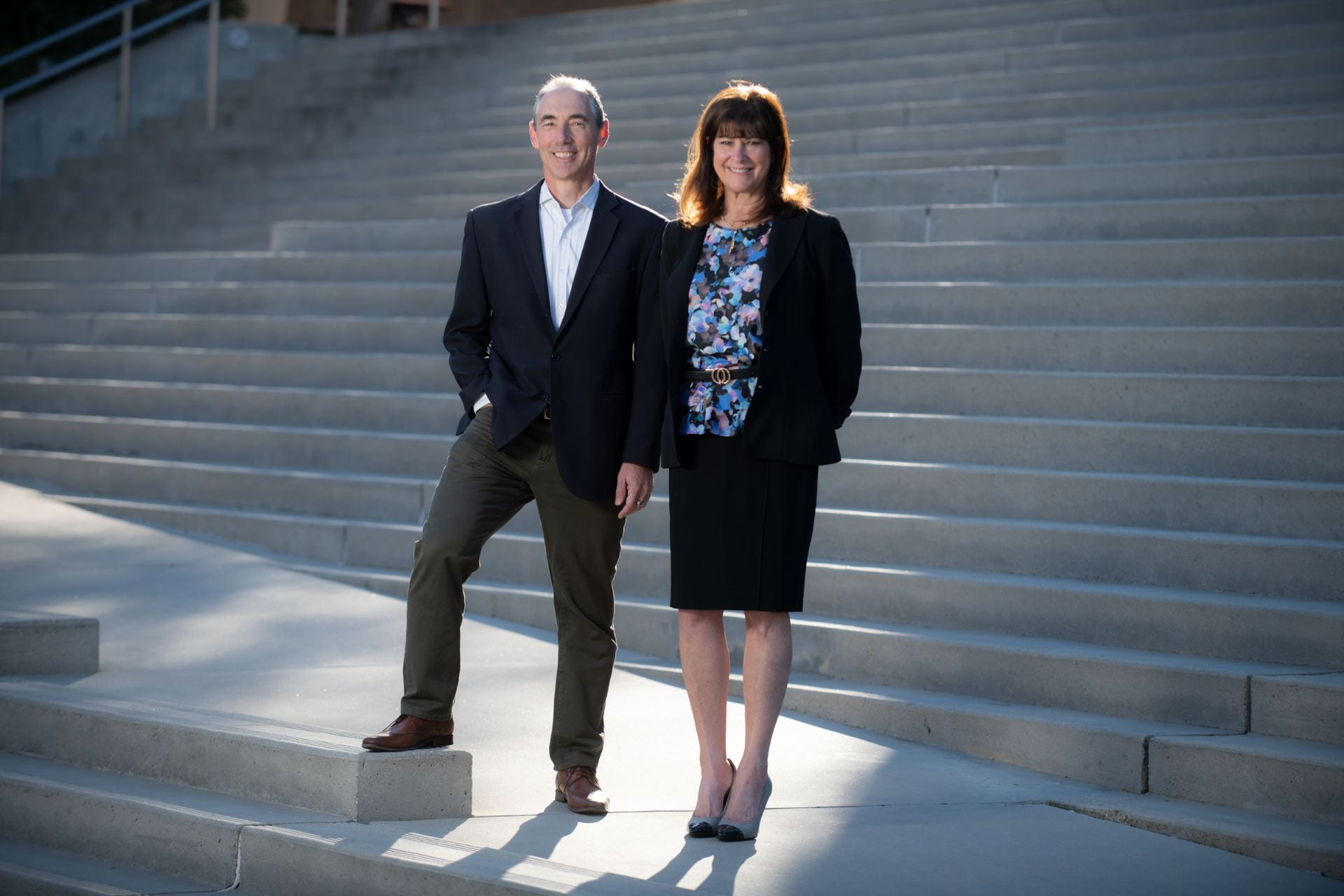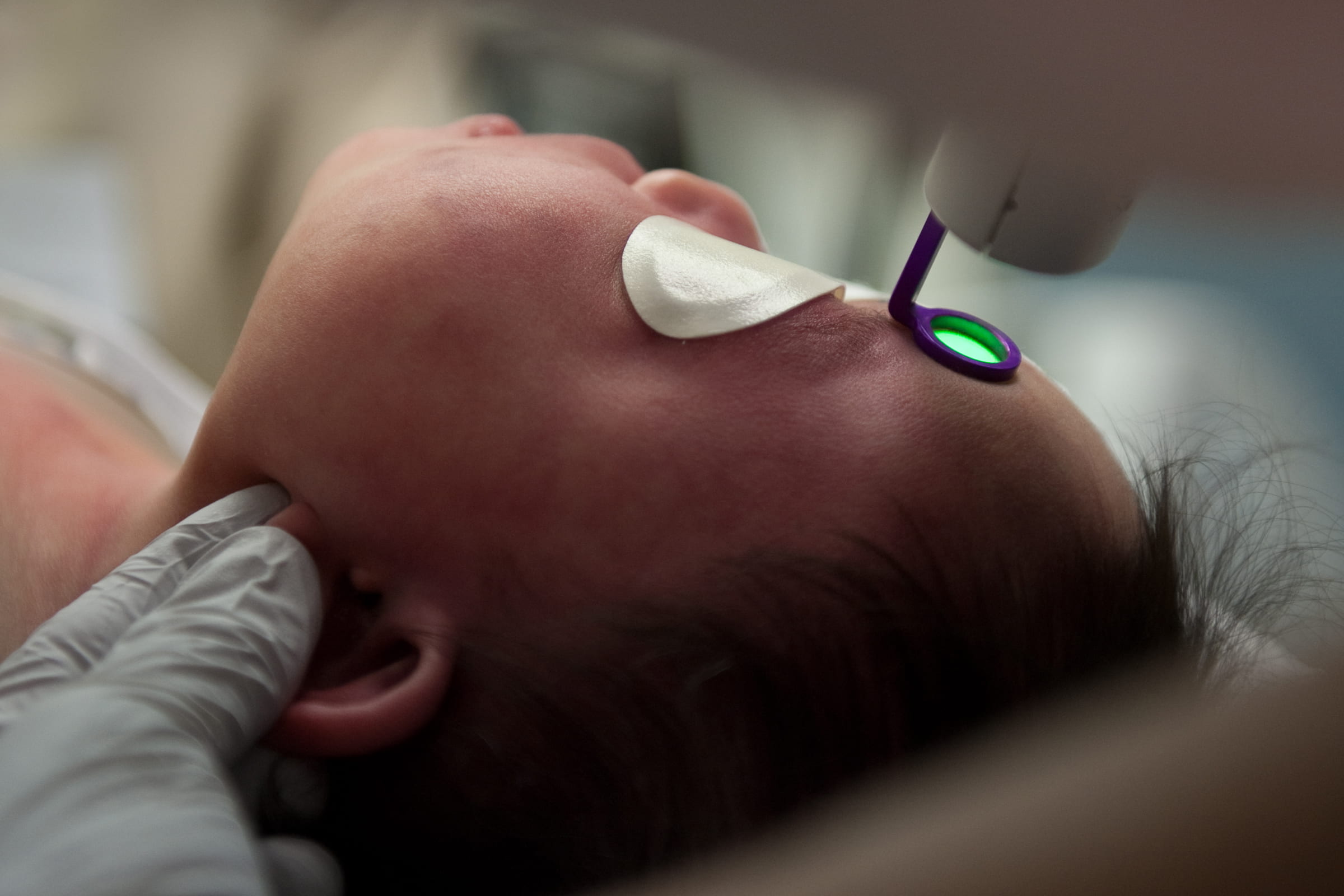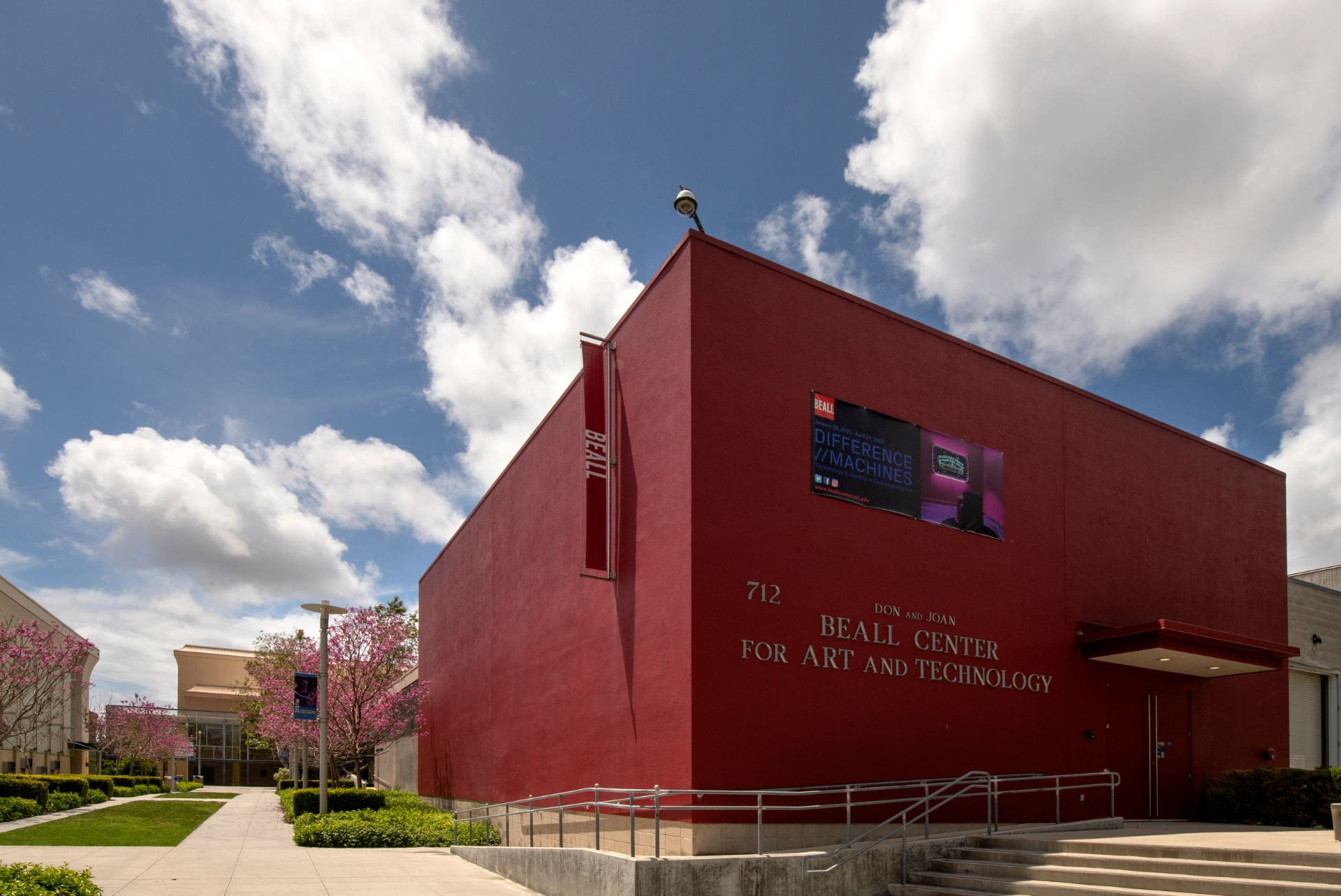UCI announces launch of Institute for Precision Health
Individually tailored wellness approach is giant leap in patient control, improved outcomes

Irvine, Calif., Feb. 15, 2022 — The University of California, Irvine today announced the launch of the Institute for Precision Health, an endeavor that marries UCI’s powerhouse health sciences, engineering, machine learning, artificial intelligence, clinical genomics and data science capabilities to deliver the most effective health and wellness strategy for each individual person and, in doing so, confronts the linked challenges of health equity and the high cost of care.
The institute will bring a multifaceted, integrated approach to what many call the next great advancement in healthcare. Precision medicine collects patient data – history, exams, demographics, molecular and diagnostic tests – and uses the power of computer algorithms, predictive modeling and AI to develop personalized treatment and lifelong health maintenance plans.
“What we’re doing at the Institute for Precision Health is perhaps the most important step we’ll take in this generation to improve health and well-being,” said Steve A.N. Goldstein, M.D., Ph.D., FAAP, UCI’s vice chancellor for health affairs. “The ever-evolving capabilities of the IPH herald a future of personally tailored care that fundamentally alters the healthcare landscape to place the patient at the center and in control.
“In the past, individuals were treated based on approaches thought to be best for groups of patients. Now we begin the IPH epoch of patient-centric care designed to continuously improve the health of the individual within their community, even as new knowledge accrues, whereby rights, incentives, transparency and control remain the purview of the patient,” Goldstein added.
IPH is an ecosystem for collaboration across disciplines that comprises seven areas:
- SMART (statistics, machine learning, artificial intelligence) develops novel statistical methodology to integrate and analyze health records, molecular data and observational clinical outcomes. The unit is led by Daniel Gillen, professor and chair of statistics, and Zhaoxia Yu, associate professor of statistics.
- A2IR (applied artificial intelligence research) translates machine learning methods into deployable solutions addressing clinical problems and matching the cost of care to its value. This unit is led by Peter Chang, assistant professor-in-residence of radiological sciences.
- A3 (advanced analytics and artificial intelligence) brings novel solutions to improve health and wellbeing to ambulatory and impatient settings. The unit is led by Daniel Chow, assistant professor-in-residence of radiological sciences.
- Precision omics generates and translates genomic, proteomic and metabolomic research results into clinical applications. This unit is led by Suzanne Sandmeyer, professor in biological chemistry and director of the genomics high-throughput facility, and Leslie Thompson, Donald Bren professor and Chancellor’s Professor in psychiatry & human behavior and neurobiology & behavior.
- Collaboratory for health and wellness (powered by Syntropy) provides the ecosystem that fosters collaboration across disciplines through the integration of health-related data sources. The unit is led by Kai Zheng, chief research information officer of Health Affairs, and Tom Andriola, vice chancellor for information technology and data.
- Deployable equity engages community stakeholders and health-equity groups to create solutions that narrow the disparities gap in the health and wellbeing of underserved and at-risk populations. The unit is led by Dan Cooper, professor of pediatrics and director of the UCI Institute for Clinical and Translational Science, and Bernadette Boden-Albala, professor and director of the Program of Public Health and founding dean of the planned School of Population & Public Health.
- Education and training, with leadership from each of the above areas, brings courses, seminars, certificates and degrees in statistics, machine learning-artificial intelligence, omics, and bioinformatics to practitioners and students.
Because the disciplines included in IPH already existed at UCI, Goldstein noted, it was in many ways only a small step to join them together and build a resource across campus. The synergy created, however, is no small matter. “This is the giant leap for healthcare. It’s glaringly clear that precision health is how to increase the quality of care, to decrease the cost of care – by both improving how it’s delivered and matching cost to value – and to deliver quality healthcare to the underserved,” he said, adding that the institute’s success will be measured by improvements in individual and community health.
A major goal is revealing new approaches to tackle ailments that lack successful therapies. “For many diseases – especially neurodegenerative ones like Alzheimer’s, Parkinson’s and even Huntington’s, where the causal gene is known – there are simply no treatments available that change their course. We’re excited because we know that with precision health, we have the potential to define diseases better, understand them better and treat them far better,” said Thompson, IPH co-director. “We expect major breakthroughs.”
While the vision idea for IPH has long been in the works, the COVID-19 pandemic was a beta test demonstrating how rapidly critical medical needs could be addressed. In early 2020, with elements of IPH in place, UCI clinicians, biomedical and computer scientists, and public health experts joined forces to create an AI-driven tool to assess the critical care needs of COVID patients. This app-based tool, the COVID Vulnerability Index, demonstrated that a data-driven approach coupled with world-class clinical therapeutics could help yield the best outcomes for individuals.
“We couldn’t have had a ‘proof of concept’ with higher stakes than the pandemic,” said Tom Andriola, IPH co-director. “We saw in real time how mobilizing our capabilities to analyze health data and make customized decisions could complement leading-edge clinical treatments to save lives and reduce hospital stays.”
“Additionally, there is an explosion of data in healthcare, and we’re still only using a small fraction in decision-making,” he added. “IPH is including not only data from traditional healthcare settings but also the data coming from a new generation of empowered health consumers who are tracking and managing their own health journey.”
The plan is for IPH to have a brick-and-mortar home on the UCI campus that will serve as a hub for educating data-informed clinicians to practice at the top of their licenses, a site for the infrastructure to facilitate translational research, a place for community outreach and a venue for commercial collaborations. Already, industry leaders such as Syntropy and MITRE and community partners such as Children’s Health of Orange County and the VA Long Beach Healthcare System are working with IPH to leverage UCI’s capabilities and commitment as a fair broker for health data, placing individuals first.
“For patients, the message is that UCI’s Institute for Precision Health is the future of your care and well-being,” Goldstein said. “For the research community, IPH is a wide-open opportunity for discoveries that matter. For the business community, IPH is ready to partner to advance new, cost-effective care. And for the philanthropic community – the folks who are determined to change the world – this is it. This is your chance.”
About UCI’s Brilliant Future campaign: Publicly launched on Oct. 4, 2019, the Brilliant Future campaign aims to raise awareness and support for UCI. By engaging 75,000 alumni and garnering $2 billion in philanthropic investment, UCI seeks to reach new heights of excellence in student success, health and wellness, research and more. Learn more by visiting brilliantfuture.uci.edu.
Media: Please see the accompanying infographic detailing IPH’s structure. Additional resources for journalists may be found at communications.uci.edu/for-journalists. Radio programs/stations may, for a fee, use an on-campus ISDN line to interview UCI faculty and experts, subject to availability and university approval. For more UCI news, visit news.uci.edu.
About the University of California, Irvine: Founded in 1965, UCI is the youngest member of the prestigious Association of American Universities and is ranked among the nation’s top 10 public universities by U.S. News & World Report. The campus has produced five Nobel laureates and is known for its academic achievement, premier research, innovation and anteater mascot. Led by Chancellor Howard Gillman, UCI has more than 36,000 students and offers 224 degree programs. It’s located in one of the world’s safest and most economically vibrant communities and is Orange County’s largest employer, contributing $7 billion annually to the local economy and $8 billion statewide. For more on UCI, visit www.uci.edu.
About UCI Health Affairs: Founded in 2017 with a $200 million gift from Orange County philanthropists Susan and Henry Samueli, UCI Health Affairs is a first-of-its-kind health science enterprise and is unique to Orange County, California. Together, the Susan & Henry Samueli College of Health Sciences, UCI Health, and health-focused centers and institutes form UCI Health Affairs, led by Vice Chancellor Steve A.N. Goldstein, M.D., Ph.D., FAAP. Health Affairs has a tripartite mission to “discover, teach, heal” in the service of creating the diverse healthcare workforce of the future and driving scientific discoveries to advance wellness, precision care and health equity. The college comprises the School of Medicine, the Sue & Bill Gross School of Nursing, the recently launched School of Pharmacy & Pharmaceutical Sciences, the planned School of Population & Public Health and the Susan Samueli Integrative Health Institute. The research centers and institutes are focused on cancer, clinical translational science, precision health informatics, clinical trials and stem cells. UCI Health is the only academic health system in Orange County, the sixth-largest county in the nation. UCI Health Affairs is transforming education, discovery and patient care to benefit the region, state and nation. For more, visit https://www.cohs.uci.edu/about/index.php.


